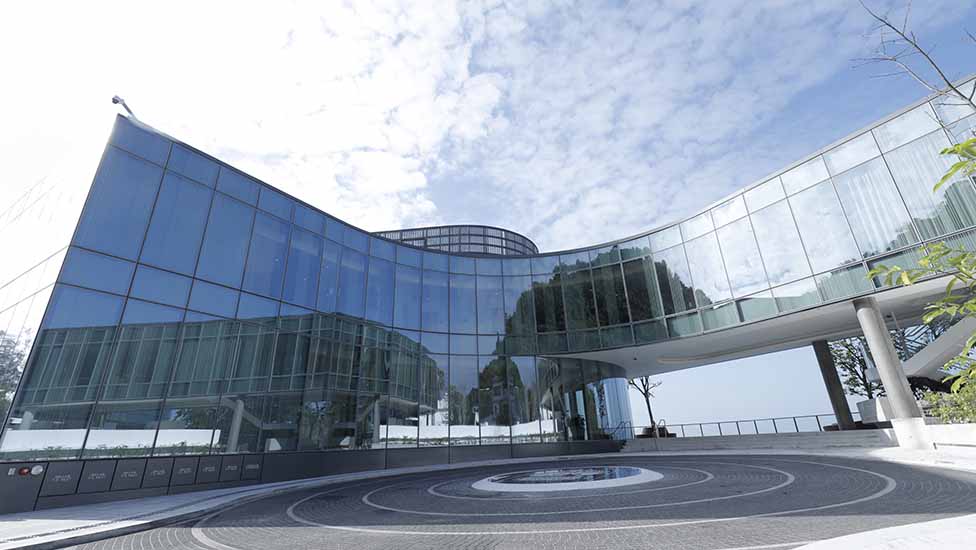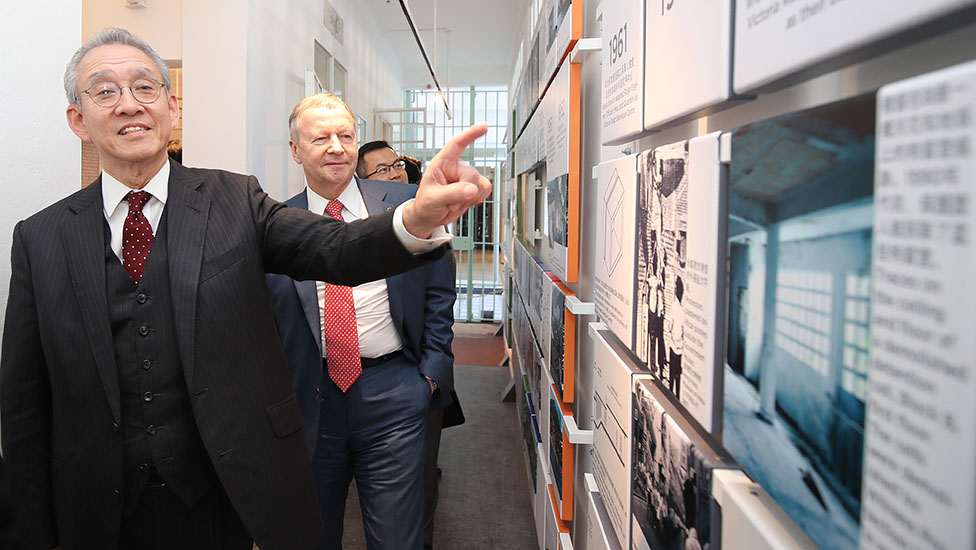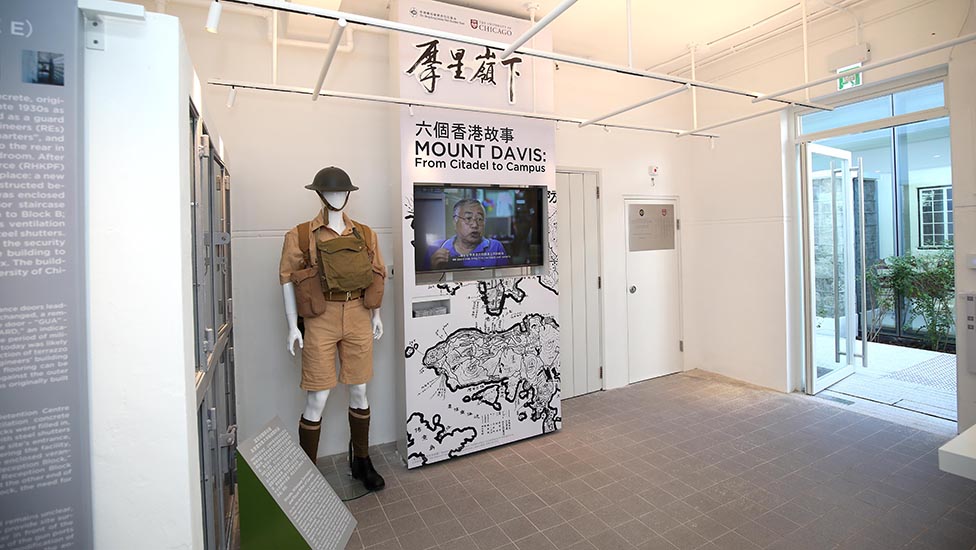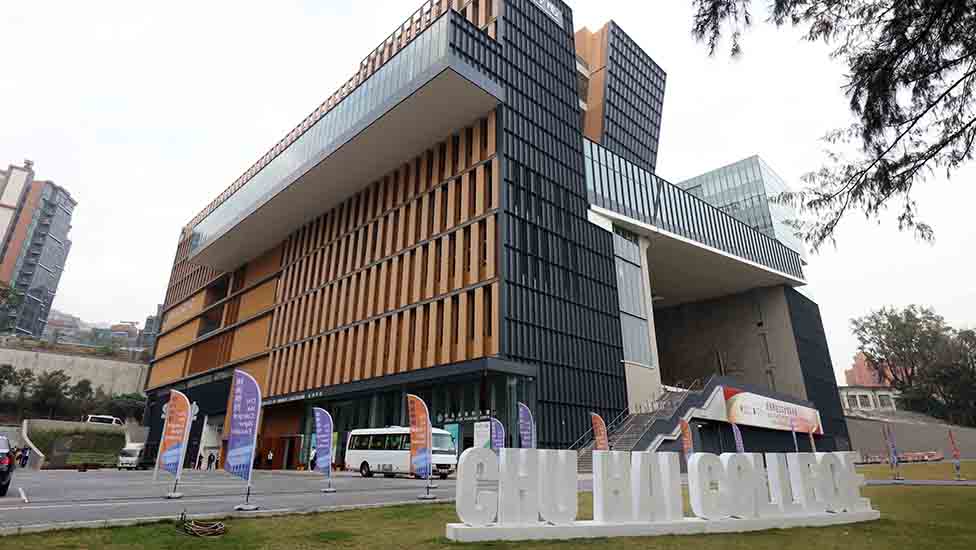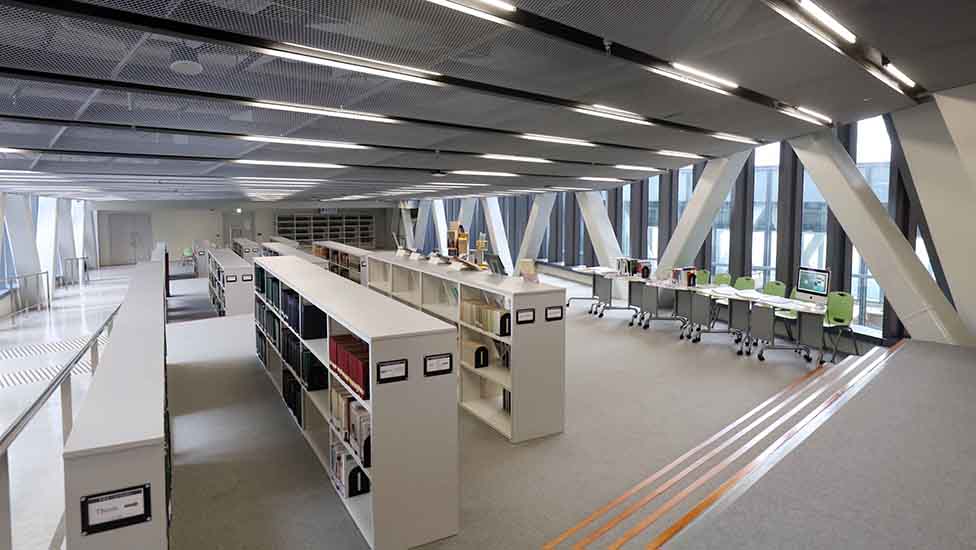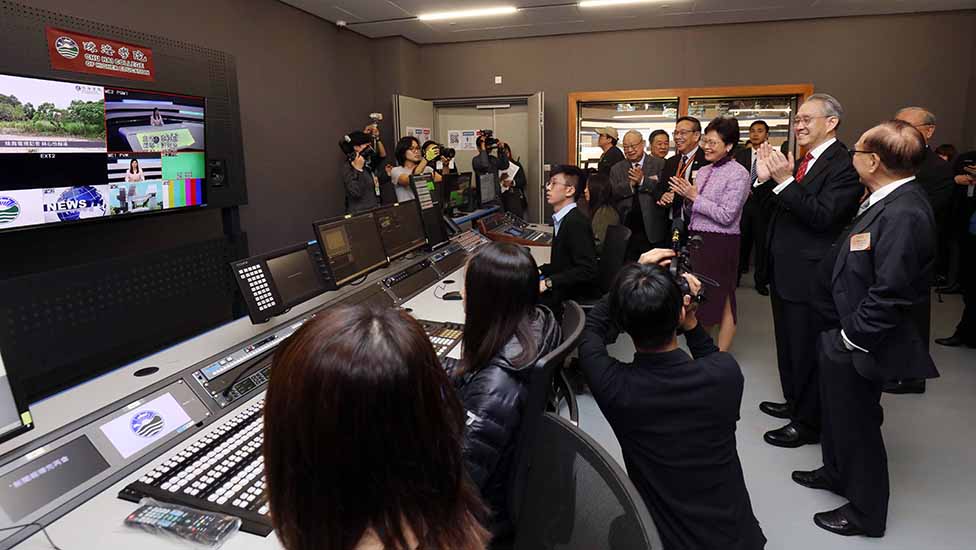Adding Another Dimension to the Higher Education Landscape
The University of Chicago’s Hong Kong campus, located in the historic Mount Davis area, was officially opened. To the unsuspecting eye, the site may be just a number of dilapidated buildings that have been off-limits to the public for years. It was originally part of the Jubilee Battery built in the 1930s to form a strategic line of defence to the western approach of Victoria Harbour. After the Second World War, it was first used to provide makeshift housing for refugees, then was converted into a British Army Royal Engineers’ mess and quarters, before becoming the Victoria Road Detention Centre under the Hong Kong Police Force. Since 1997, the site has been unoccupied, although it was occasionally used as a movie set.
A HK$234 million Social Impact Grant made by the Club’s Charities Trust has now injected new life into these historic buildings. In addition to covering the partial construction cost of The Hong Kong Jockey Club University of Chicago Academic Complex on the campus, the grant has fully funded The Hong Kong Jockey Club Heritage Preservation Project for the preservation of the Grade 3 listed heritage buildings on the site and their incorporation into the campus.
Now the general public can visit these heritage buildings to appreciate what made it one of the key military strongholds in Hong Kong in the old days, or immerse yourself in the city’s hidden history through regular exhibitions and guided tours organised in The Hong Kong Jockey Club University of Chicago Heritage Courtyard and Interpretation Centre located at the campus. These activities enable visitors to learn more about these buildings and their context in Hong Kong’s history.
The Social Impact Grant, a unique funding model, enables a 15-year intense and committed collaboration between the University and the Trust, i.e. The Hong Kong Jockey Club Programme on Social Innovation, which targets to create a long-term social impact and to enhance capacity building of the local NGO sector. The Trust will be continuously involved on the development and implementation of the Jockey Club Programme on Social Innovation so as to ensure long-term benefit for Hong Kong in delivering community values and strengthening its social welfare sector.
In order to help local social entrepreneurs and NGO leaders grow their capabilities, the University of Chicago will conduct The Hong Kong Jockey Club Programme on Social Innovation. Under this initiative, business programmes tailor-made for Hong Kong’s social sector will be offered. In addition, events and workshops will be organised in fields such as impact investing, social entrepreneurship and NGO board governance, with a view to meeting the city’s evolving social needs by improving the sector’s non-profit governance and managerial capacity. This programme provides 30 full-tuition Executive MBA and 120 non-degree Executive Education scholarships to help NGO leaders take courses offered by the University. The whole 15-year programme is expected to benefit over 4,600 social sector professionals.
“We particularly have in mind smaller NGOs and start-up social enterprises, which would especially benefit from business and management education but invariably lack the resources to pay for it themselves,” says Club Chairman Dr Anthony W K Chow.
Dr Chow believes the project and related education initiatives will facilitate the development of Hong Kong into an education hub in the region. Another example of the Club’s commitment towards the development of youth and education is the newly opened main campus of Chu Hai College of Higher Education at Tuen Mun.
The campus of Chu Hai College of Higher Education has been relocated several times, from the Guangzhou campus of its early days to a building in Mong Kok in the 1960s, followed by a Tsuen Wan campus in the 1990s, and finally the new Tuen Mun campus. The new campus has been built on land granted by the Government, with the support of a HK$200 million donation from The Hong Kong Jockey Club Charities Trust.
Unlike previous campuses which were converted from secondary schools with limited space and facilities, Chu Hai’s new Tuen Mun campus is purpose-built to enhance its teaching and learning environments. The Jockey Club Academic Tower, one of its two major buildings, houses a full range of facilities including auditoriums, a media production studio, laboratories, an indoor gymnasium and a library. It is expected that the new campus will benefit over 4,000 students each year.
The College will have its own student hostel for the first time. Dr Chow believes that the student hostel will allow students from different cultural backgrounds to communicate better with each other, thereby contributing to their holistic development.
With the completion of the two new school buildings, the University of Chicago’s Hong Kong campus and the Chu Hai College of Higher Education’s new Tuen Mun campus, which will contribute to a diversified education landscape in Hong Kong, students will be able to enjoy more choices in their education pathways.



